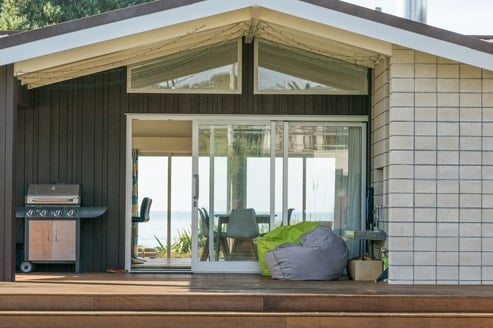Do you want to escape the rush and bustle of everyday life and experience the peacefulness of Costa Rica? You are not alone. This Central American gem’s colorful culture and gorgeous surroundings entice many Americans to come visit. As you consider making this exciting step, you may have a lot of questions in your head. Have no fear! In this article, we’ll answer some frequent questions about traveling to Costa Rica from the United States and provide tips to make your transition seamless. Let’s dive in!
1. Can I move to Costa Rica from the U.S.?
Absolutely! Moving to Costa Rica is open to U.S. citizens, and many have already made the leap. It’s essential to note that the recent global pandemic has added a layer of complexity to travel and immigration, so staying informed about the latest updates is crucial. When it comes to your belongings, while you have the option to handle the move yourself, hiring professional international movers is highly recommended. They are well-versed in the logistics, ensuring a smoother transition for you.
2. Do I need a Visa to move to Costa Rica?
Yes, you will need to check the visa requirements. U.S. citizens can enter Costa Rica for up to 180 days without a visa for tourism purposes. However, for those planning to stay longer or work, obtaining the appropriate visa is essential. Work permits and digital nomad visas are available for those seeking employment or remote work opportunities. Costa Rica has recently approved a digital nomad visa for qualified foreign nationals, allowing them to stay in the country legally for one year if they earn their income remotely and abroad. This new visa option is expected to make moving to Costa Rica easier for remote workers.
3. What are the requirements for retirees moving to Costa Rica?
The Pensionado Program is a popular choice for retirees, requiring proof of a minimum monthly pension income of $1,000. The Rentista Program offers an alternative for individuals who do not have a pension but can demonstrate a monthly income of at least $2,500 for at least two years or a $60,000 deposit into a Costa Rican bank. Another option is the Inversionista Program, which requires an investment of at least $200,000 in property, shares, or business projects in Costa Rica. It’s important to consult the Embassy of Costa Rica in Washington, D.C., or visit their website for the most up-to-date information on residency requirements. This program provides a pathway for retirees to enjoy the country’s natural beauty and a more relaxed lifestyle.
4. How is healthcare in Costa Rica?
When it comes to healthcare, Costa Rica is renowned for providing top-notch medical services. International Living describes Costa Rica as having some of the best healthcare in Latin America. Expats have access to the country’s universal healthcare system as well as private healthcare options. The cost of healthcare in Costa Rica is significantly lower compared to the United States, with treatments often costing only a fraction of what they would in the U.S. In 2024, a typical general practitioner doctor visit is US$50-75 and a specialist doctor visit US$100-120.
The public healthcare system is known for its quality and affordability. Residents and expats can also opt for private healthcare services, which often provide a more extensive range of services and shorter wait times. It’s advisable to secure health insurance to cover any medical expenses, and many retirees find the healthcare facilities and services in Costa Rica to be of high standard.
Check out Healthcare in Costa Rica
5. Can I work in Costa Rica?
The short answer is yes, but there’s a catch. To legally work in Costa Rica as a foreigner, you’ll need to secure a work permit or qualify for a digital nomad visa or create a Costa Rican corporation to work out of or work remotely. The process for obtaining a work permit involves extensive paperwork and can be time-consuming. Many expats in Costa Rica opt for alternative sources of income, such as pensions or savings, to navigate around the complexities of work permits.
6. Can I move to Costa Rica with my pet?
Absolutely! Bringing your pet along is a well-traveled road. To ensure a hassle-free journey for your pet, make sure they have all the necessary vaccinations up to date. Obtaining a health certificate from your veterinarian is also a must. The U.S. embassy provides comprehensive information on the specific requirements for bringing pets into Costa Rica, covering everything from microchipping to rabies vaccinations.
For more detailed information, please check out our previous blog about How To Fly Your Pet To Costa Rica.
7. Will it be easy to enroll my child in school in Costa Rica?
Costa Rica is renowned for its safety and family-friendly environment. When it comes to education, you have options. There are public, private international schools catering to diverse needs. Public schools predominantly teach in Spanish, offering a cultural immersion experience. However, if you prefer English instruction, the private international schools offer classes in English as well as some classes in Spanish. Researching and selecting a school that aligns with your family’s preferences and your child’s educational needs is key to a successful transition.
Here’s Your Guide to Schools in Costa Rica for more information.
8. Where is the Best Place to Buy Property in Costa Rica?
Guanacaste is a remarkable region renowned for its stunning beaches and diverse landscapes. Among the top areas for property investment, three gems stand out: Tamarindo, Reserva Conchal, and Flamingo.
Tamarindo: Embracing a vibrant beach town atmosphere, Tamarindo is a hot spot for property seekers. Boasting various amenities, this area offers a perfect blend of laid-back coastal living and lively entertainment. Tamarindo is known for its diverse real estate options, from beachfront condos to spacious villas, making it an attractive choice for those seeking a dynamic community by the sea.
Reserva Conchal: If luxury living is on your radar, Reserva Conchal is a prime destination. This area is synonymous with upscale resorts, pristine beaches, and a sophisticated lifestyle. Reserva Conchal offers exclusive residential communities with top-notch amenities, including golf courses and beach clubs. Investing in property here ensures a harmonious blend of elegance and natural beauty. This community is very popular with expat families with children who attend private schools as there are 4 expat schools within a 10 minute drive of Reserva.
Flamingo: For those desiring a picturesque coastal haven, Flamingo is a treasure trove. Known for its stunning white sand beach and breathtaking ocean views, this area has become a sought-after location for homebuyers. Flamingo offers a diverse range of real estate options, from hillside properties with panoramic views to beachfront estates. The community exudes a tranquil ambiance, making it an ideal choice for those seeking a peaceful yet captivating lifestyle.
When considering property in Guanacaste, thorough research is crucial. Consulting with local real estate experts can provide valuable insights into each area’s unique offerings, helping you find the perfect match for your preferences and investment goals.
Ready to Explore Your Dream Property in Guanacaste? Contact Flamingo Beach Realty Today!
Whether you’re drawn to the vibrant Tamarindo, the luxurious Reserva Conchal, or the tranquil beauty of Flamingo, Flamingo Beach Realty is here to guide you. Let our experts assist you in finding the perfect home in this paradise. Contact us today to turn your Costa Rican dream into reality!




